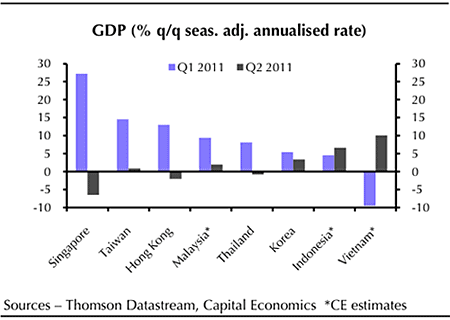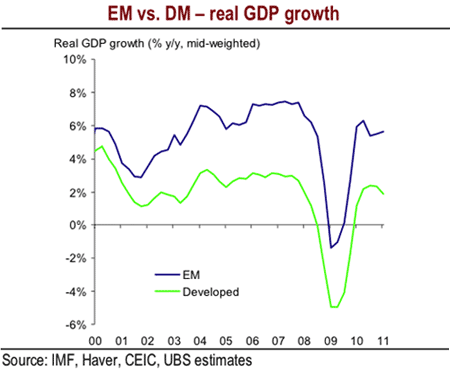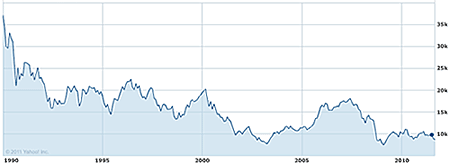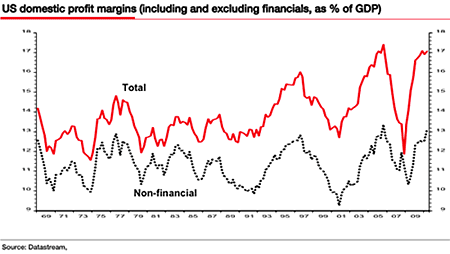The best way to profit from scandal-hit India
Corruption is a long-standing issue in India. And the latest spate of scandals has hit the subcontinent's stocks hard. But as panicky investors sell, it has created a buying opportunity, says Cris Sholto Heaton. Here, he picks two of the best ways to invest in India.

Get the latest financial news, insights and expert analysis from our award-winning MoneyWeek team, to help you understand what really matters when it comes to your finances.
You are now subscribed
Your newsletter sign-up was successful
Want to add more newsletters?

Twice daily
MoneyWeek
Get the latest financial news, insights and expert analysis from our award-winning MoneyWeek team, to help you understand what really matters when it comes to your finances.

Four times a week
Look After My Bills
Sign up to our free money-saving newsletter, filled with the latest news and expert advice to help you find the best tips and deals for managing your bills. Start saving today!
Back from my summer break, it's a relief to find the world hasn't ended while I was away. I could certainly have thought otherwise from some of the panicky headlines I saw last month.
Still, there's no doubt that the short-term outlook is gloomier than it was a couple of months ago. So let's take a look at some of the trends and also one country where I find the news surprisingly encouraging.
We need to get used to recession
On the economic side, the news has been pretty glum for the last few weeks. Growth seems to be slowing in most major Western economies and fears of another recession are rising.
MoneyWeek
Subscribe to MoneyWeek today and get your first six magazine issues absolutely FREE

Sign up to Money Morning
Don't miss the latest investment and personal finances news, market analysis, plus money-saving tips with our free twice-daily newsletter
Don't miss the latest investment and personal finances news, market analysis, plus money-saving tips with our free twice-daily newsletter
And if you follow GDP reports in Asia and other emerging regions, it looks like the effects of this are already spilling over. Many countries have reported a sharp fall in GDP growth in the second quarter and even an outright drop in some cases, as the chart below from Capital Economics shows.

As it happens, I wouldn't jump to the conclusion that growth has stalled in Asia as much as this suggests. There are other factors, such as disruption to supply chains following the earthquake in Japan. In addition, some countries such as Singapore grew unsustainably fast in the first quarter and a pullback after that is not surprising.
But unquestionably, if the West has another recession it will hit small trade-dependent economies like most of the ones in the chart above. It always has and it always will.
There are a handful of emerging economies that are less directly affected by demand elsewhere. China and India are the obvious two, being the biggest and most self-contained. But these two have shown signs of slowing as well, for domestic reasons.
The Reserve Bank of India has been raising rates steadily to try to keep inflation under control. And China has been trying to rein in bank lending and real estate after the boom of the last couple of years.
Neither has really achieved their objective yet and should probably keep policy tight for a while longer. So with the West's slow growth seemingly taking a turn for the even worse, and the biggest, most independent emerging markets trying to cool things off rather than accelerate (especially China, which matters far more for external demand than India), the outlook for the next few months is a little grim.
This will undoubtedly be greeted with the usual series of articles about how the idea that emerging markets can decouple from the West is wrong. And sure, in a globalised world, Malaysia cannot shake off a recession in the US.
But, this is also the wrong thing to worry about. The question is not whether economies shrink and contract together they do to a large extent. It's whether Asia and other emerging markets can grow faster over the next few years than a sluggish, debt-laden West.
And in my view, they can and will. The chart below from UBS makes the point. Emerging markets were growing about four percentage points faster than developed ones before the global crisis and have been showing a similar advantage in the couple of years since.

So if we're heading for another slowdown/bumpy patch/recession, we're likely to see another nasty downturn in this chart in both developed and emerging markets. But when we come out the other side, emerging markets will still be growing faster.
Developed world earnings are looking stretched
And that's good, because I suspect we're going to be seeing a lot of these ups and downs over the next few years and had better get used to it. I'm not sure that recessions will actually be more frequent but sluggishness and scares about growth and unemployment will be.
Japan's recent history is a reasonable blueprint for this. Deleveraging and recovery from the excesses of the last decade is not going to be easy or quick.
This is going to hit stocks. If you look at the Nikkei since 1990, you can see a so-far endless series of doomed rallies that gave investors hope, only to peter out and then head to a new low.

It seems likely that we will have similar experience in Western stock markets. It may not be so drawn out the S&P500 was nothing like as overvalued in 2007 as the Nikkei was in 1990. But abrupt sell-offs like the one we've just experienced are likely to be common.
One thing that makes this more likely is the peculiar behaviour of US corporate profits. Company profit margins and in particular margins for financial companies were unusually high in the years before the global crisis. When it all unwound, many of us expected these to return to normal.
But they didn't. As the chart below from Socit Gnrale shows, margins recovered very rapidly.

Non-financial margins are back to a very good though not unprecedented level. Margins including financials are back at their previously unprecedented highs. Companies have been able to cut costs aggressively helped by the very weak labour market and preserve profitability.
But it seems likely there's a limit to how far this can go. Most firms can't continually increase profits in an economy as weak as this.
So I suspect that the level of profits that investors are currently valuing the market on may prove unsustainable over the next few years. Profit growth from here may be rather poor.
However, margins in the emerging world are not at unreasonable highs, while the economic fundamentals are sounder. Undoubtedly if global growth is poor over the next few months, emerging market firms will see profits hit. But on a multi-year view, their outlook remains much brighter than Western ones.
Panicking Indian investors could create a buying opportunity
I didn't see only bad news while I was away. Perhaps surprisingly, regular stories about corruption in India actually encouraged me.
You may remember this all began late last year, when an enormous scandal focused on telecoms licences came to light. At the time, I said that investors should not have been terribly surprised: corruption is a long-standing issue in India.
I actually suggest that investors should "ignore" it in this piece: Why investors should ignore the latest scandals in India. Obviously, the market hasn't done so India has been a very poor performer ever since (see chart below).

But I stand by the point I made then. If these problems exist, we should be glad to see them coming out, since that should increase the pressure to clear up the system.
Public anger has been enormous. Religious leaders have been on hunger strike demanding tougher anti-corruption measures. And more and more cases have come to light the most recent being the arrest of a former government minister for allegedly large-scale unlicensed mining.
It may be unedifying to watch short term, but India will hopefully emerge better from this. However, this, combined with the central bank's steady monetary tightening, has certainly depressed local markets. But at these levels, I'm starting to feel that India is the major market to watch if you're looking to buy on any sell-offs.
My usual suggestion for an India fund is Aberdeen's New India Investment Trust (LSE:NII). This is a relatively conservatively managed fund with a focus on good quality companies. It currently trades on a discount to net asset value of 7.5%. The annual management fee is 1% and the total expense ratio last year was 1.5%.
On the unit trust/open ended investment side of things, I think the First State Indian Subcontinent Fund would be a solid choice. There's an initial charge of 4% and an annual management charge of 1.75% (with a total expense ratio of 2.1%). But buying through discount broker Cavendish Online ducks the initial charge and gets the annual fee down to 1.25%.
Get the latest financial news, insights and expert analysis from our award-winning MoneyWeek team, to help you understand what really matters when it comes to your finances.

Cris Sholt Heaton is the contributing editor for MoneyWeek.
He is an investment analyst and writer who has been contributing to MoneyWeek since 2006 and was managing editor of the magazine between 2016 and 2018. He is experienced in covering international investing, believing many investors still focus too much on their home markets and that it pays to take advantage of all the opportunities the world offers.
He often writes about Asian equities, international income and global asset allocation.
-
 Pitch to Portfolio: Lioness Jill Scott's investing game plan
Pitch to Portfolio: Lioness Jill Scott's investing game planPodcast After bringing football home as a Lioness, Jill Scott discusses how she transformed her finances and became an investor in this latest episode of MoneyWeek Talks.
-
 UK unemployment hits highest level since 2021 – will interest rate cuts follow?
UK unemployment hits highest level since 2021 – will interest rate cuts follow?UK unemployment reached its highest rate in almost five years by the end of 2025. Is AI to blame and will the Bank of England step in with an interest rate cut in March?